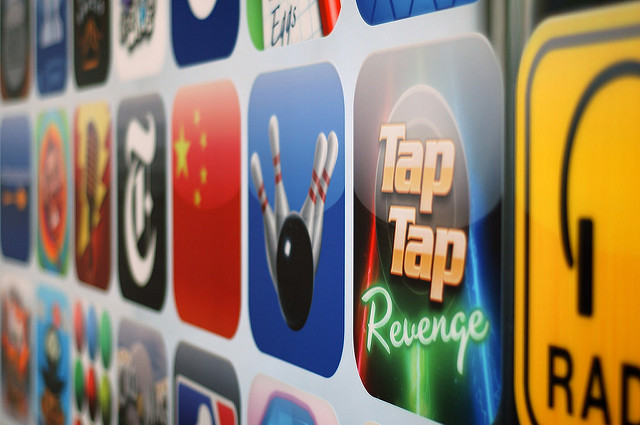Many entrepreneurs find that after they have gone through the mobile app development process with a mobile app development company that they are not getting the number of downloads that they expected. This is not surprising as building an app is just part of the journey.
 What you do after you have your app live is just as important as the time and money you put into having your app built. One essential part of your strategy after your app is live is to optimize your app store listings. This is more important than ever considering the number of apps that are now available on app stores.
What you do after you have your app live is just as important as the time and money you put into having your app built. One essential part of your strategy after your app is live is to optimize your app store listings. This is more important than ever considering the number of apps that are now available on app stores.
According to Apple, 65 percent of app downloads are a result of users searching the app store. This number is higher than any other method and makes optimizing your listing essential to app success. When you optimize your listing, your app will become more likely to appear in relevant searches. This allows you to better capitalize on the searches of users in the app stores.
To get maximum benefit, it is essential to consider the specific platform your app is available on as Apple and Google each have different methods for indexing apps. Because of this, you will want to create listings that cater to each platform individually.
Apple iTunes App Store
Optimizing your app listing here consists of two main parts: your app title and your app keywords. While your title will be the only one of these two visible to the public, both are important when it comes to how your app rank in searches.
Try combining words from your title and your keywords to create phrases that can generate more downloads. For example, if you have an app called ‘XYZ Chat App’ and you have the word ‘Free’ as one of your keywords since your app is free, you can help boost the number of times users find you by including the phrase ‘Free Chat App’ in your keywords since it is likely to be searched.
Apple will determine which phrases and keywords are most relevant based on your description and your app itself. Due to this, having the proper keywords in your title and keywords section is very important on the iTunes App Store.
Google Play
One big difference with Google Play is that it restricts the title to 30 characters. This will limit your ability to include key terms in your app’s title. Additionally, Google Play does not have a keyword section where you can enter manually targeted keywords.
Instead, Google Play will use your title, long description and short description to determine which terms are most relevant to your app. Your short description is an 80 character description of your app that appears to mobile users as they search. Google Play weighs your title and short description heavily when it determines your ranking, so make sure you use highly searched, relevant keywords and phrases in your short description.
This applies to your long description as well, if you can naturally work in highly searched, relevant keywords into your description in a natural way, you can improve your rankings.
Focus on Conversion
To improve the number of downloads you get, try to use the relevant, trending terms in your keywords. However, keywords should not be the only thing you consider. A user needs to look at your listing and decide to download your app.
Having the right icon and screenshots is very important. Fact is, if your app has great keywords, a solid title and a captivating description, but presents users with an unappealing icon and screenshots, you will not get the number of downloads you are hoping for.
On the iTunes App store, Apple will display two screenshots for each app in their search results. This makes your first two screenshots critical for converting. On the other hand, Google Play does not display screenshots in the search results. Your icon is the only image they feature. Making it very important in creating downloads.
Make sure you understand these differences when you set up your listing for each store. Remember that while each platform has its own unique set up, efforts made to optimize each according to their system will help improve the number of downloads you see for your app.
Pic: Cristiano Betta (Flikr) http://bit.ly/2iouEDW